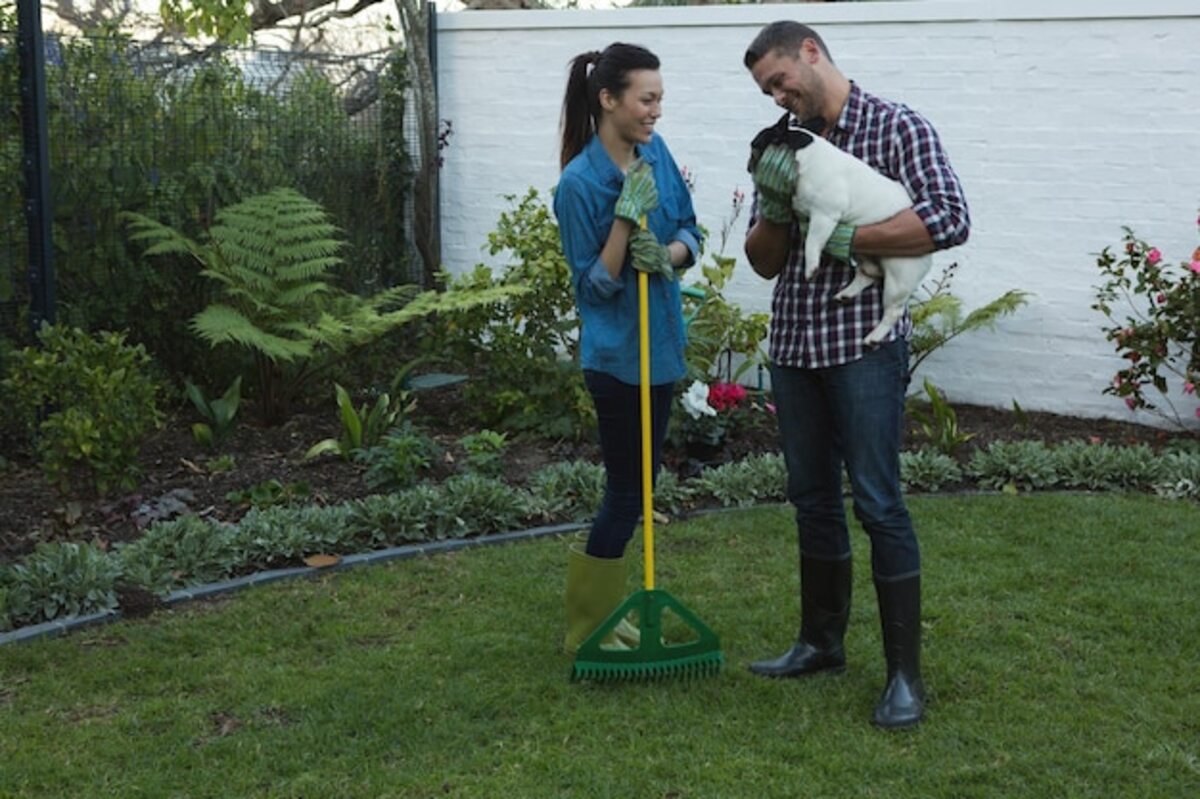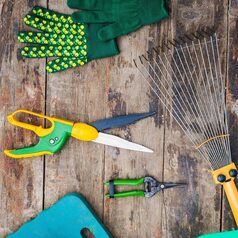Strategies for effective maintenance of your outdoor spaces

Do you want to enjoy your outdoor spaces to the fullest? Effective maintenance is key to preserving the beauty and functionality of your home. In this article, I will share simple and practical strategies that will help you take care of your gardens, patios, and terraces, ensuring that every corner shines with its own light. From lawn care to cleaning outdoor furniture, here you will find useful tips to keep your outdoor areas in optimal condition and enjoy them all year round.
1. The importance of regular maintenance in your outdoor spaces
Regular maintenance of your outdoor spaces is essential to ensure their longevity and beauty. Just like any part of your home, gardens, patios, and terraces require constant attention to avoid deterioration caused by factors such as moisture, sun exposure, and the passage of time. A well-structured maintenance program not only preserves the aesthetics of these spaces but also promotes a healthy environment by preventing issues such as pests or diseases in plants. Periodic cleaning and proper care can keep every corner vibrant and welcoming.
Additionally, investing time in regular maintenance can translate into significant long-term savings. Ignoring small tasks can lead to costly repairs or the need to replace damaged items, such as garden furniture or irrigation systems. With a proactive approach, you can identify issues before they become major complications. Similarly, dedicating a few minutes each week to simple tasks, such as watering plants or cleaning outdoor furniture, ensures that your outdoor space not only looks good but is also functional and enjoyable throughout the year.
2. Essential tools for garden care
To achieve effective maintenance of your outdoor spaces, having the right tools is essential. Among the essential tools for garden care are the pruner, which will allow you to keep your plants and shrubs in shape, ensuring they grow healthy and tidy. A shovel and a rake are equally important, as they will facilitate planting and weeding, helping you prepare the ground for new plants or flowers. Additionally, don't forget to include gardening gloves; protecting your hands is not only a matter of comfort but also of safety when handling soil and chemicals.
Another key element in your arsenal is pruning shears and a sprinkler. The shears will help you make precise cuts on branches and flowers, thus stimulating healthy growth in your plants. Meanwhile, a sprinkler will allow you to efficiently water your entire garden without the need for excessive physical effort. Also, remember to consider a wheelbarrow for transporting soil or heavy materials; this simple equipment can make a significant difference in the efficiency of your outdoor work. With these essential tools on hand, you will be well-prepared to tackle any maintenance tasks that your green spaces require.
3. How to plan an effective maintenance schedule
To ensure effective maintenance of your outdoor spaces, it is essential to plan a calendar that includes all necessary tasks throughout the year. Start by identifying essential activities, such as mowing the lawn, trimming shrubs, and cleaning patios and terraces. Write these tasks down in a monthly calendar, assigning specific dates for each activity. This way, you will not only have a clear view of what you need to do, but you will also be able to anticipate the seasons and weather conditions that may affect the care of your outdoor areas.
It is also advisable to include reminders for the preventive maintenance of outdoor furniture and accessories. This can range from deep cleaning to the application of protective treatments against moisture or insects. If you have specific plants or gardens, also consider noting the ideal time to fertilize them or apply natural pesticides. A well-structured calendar not only optimizes your time and effort but also allows you to fully enjoy your outdoor spaces without worries or unpleasant surprises.
4. Tips for efficient watering of plants and gardens
To ensure efficient watering of your plants and gardens, it is essential to understand the specific needs of each species. Research the type of soil you have and the amount of water your plants require, as some species are more drought-tolerant while others need consistent watering. Using mulch on the soil surface can help retain moisture, thereby reducing the frequency of watering and allowing the roots to stay cool. Additionally, consider implementing drip irrigation systems or automatic sprinklers, which provide a more uniform and controlled distribution of water.
The best time to water also plays a crucial role in the efficiency of the process. Water early in the morning or late in the evening; this prevents the sun from quickly evaporating the water before it reaches the roots. Also, observe the weather conditions: if it has rained recently, adjust your routine to avoid overwatering. Connecting collected rainwater in tanks or barrels is another effective strategy; not only do you save water, but you also take advantage of natural resources to keep your garden healthy and vibrant throughout the year.
5. Pruning techniques for healthy trees and shrubs
Pruning is an essential technique for maintaining the health and aesthetics of trees and shrubs in any outdoor space. By removing dead or diseased branches, you not only prevent the spread of pests and diseases but also encourage more robust and balanced growth. It is important to carry out this process at the right time; for example, many trees benefit from pruning in late winter or early spring, before active growth begins. Additionally, when pruning, make sure to use appropriate and clean tools to avoid damaging the plants and spreading infections.
There are various pruning techniques you can apply depending on the type of plant and the desired effect. Formative pruning is ideal for guiding the initial growth of a young tree, while maintenance pruning is recommended for preserving the shape and health of adult plants. You can also opt for drastic pruning in cases where shrubs have grown too much or need to be renewed. Always remember to observe the specific characteristics of each species, as some require special care to ensure their long-term well-being. With these appropriate practices, your garden will not only look more attractive, but it will also be a healthy refuge to enjoy throughout the year.
6. Cleaning and care of outdoor furniture: materials and techniques
Cleaning and maintaining outdoor furniture are fundamental aspects for preserving the aesthetics and durability of your outdoor spaces. Garden furniture, whether made of wood, metal, or plastic, requires specific attention according to the material it is made from. For example, wooden furniture should be cleaned with a soft cloth and specific products that do not damage the surface; additionally, it is advisable to apply a sealant to protect the wood from moisture and sunlight. For metal furniture, a mixture of warm water and neutral soap can remove dirt without affecting the finish. Don't forget to check the joints and connections to prevent rust or corrosion.
The proper technique also plays a crucial role in the care of these items. Make sure to perform a deep cleaning at least twice a year, removing any buildup of dust, leaves, or other debris that could damage the materials. Additionally, it is advisable to cover the furniture with protective covers during the most extreme seasons (such as winter or intense summer) to prevent accelerated wear. By following these simple yet effective guidelines, you can enjoy your outdoor furniture in perfect condition throughout the year, creating a cozy and appealing atmosphere in your home.
7. How to combat common garden pests without chemicals
Fighting common garden pests without resorting to chemical products is an effective and environmentally friendly strategy. One of the simplest techniques is creating a physical barrier, such as meshes or nets, to protect your plants from flying insects. Additionally, crop rotation can help prevent the same pests from settling in a specific location year after year. Keeping the soil healthy and fertile also plays a crucial role; by enriching it with natural compost, biodiversity is promoted, which helps attract natural predators that control pest populations.
Another very effective option is to use homemade solutions, such as insecticidal soaps made with natural ingredients. These are ideal for combating aphids and other soft insects without harming the plants or the garden ecosystem. You can also take advantage of repellent plants like mint, rosemary, and marigold, which not only beautify your outdoor space but also act as protectors against unwanted pests. By implementing these strategies regularly and closely observing your garden, you can keep your plants healthy and vibrant throughout the year without the need for harsh chemicals.
8. Maintaining paths and patios: basic cleaning and repair
Maintaining paths and patios in optimal conditions is essential to ensure that your outdoor spaces are not only aesthetically pleasing but also safe and functional. The accumulation of dirt, leaves, and other debris can hinder access and make these areas look neglected. For basic cleaning, start by sweeping or using a leaf blower to remove surface debris. Additionally, you can wash stone or brick paths with a pressure hose to remove tough stains and moss, which will help prevent slips and falls.
Basic repair is also part of essential maintenance. Regularly check the joints between the pavers or tiles; if you notice they are worn or damaged, consider filling them with sand or an appropriate sealant. If you have a wooden patio, make sure to inspect the boards for damage or splinters; sanding them and applying a sealant can extend their lifespan. These small efforts will not only improve the appearance of your walkways and patios but also give you the opportunity to fully enjoy the outdoors without worries.
9. The role of fertilizers in a vibrant landscape
The use of fertilizers is essential for maintaining a vibrant and healthy landscape. These essential nutrients not only promote plant growth but also improve soil quality, which in turn enhances the overall health of the garden. By choosing the right fertilizer, you can ensure that your plants receive the essential elements like nitrogen, phosphorus, and potassium in the correct proportions. This translates to greener leaves, more colorful flowers, and greater resistance to pests and diseases, creating an outdoor environment that invites enjoyment.
Additionally, the application of fertilizers should be part of a comprehensive maintenance plan. It's important to consider factors such as the type of plant, the seasons of the year, and the specific characteristics of the soil. Fertilization is not just an occasional act; it must be adapted to the changing needs of your landscape. Conducting periodic soil analyses will allow you to adjust the amount and type of fertilizer used, ensuring that your outdoor spaces not only look good but are also sustainable in the long term. With the right approach to fertilizer use, you can enjoy a lush garden that brings joy and harmony to your home throughout the year.



